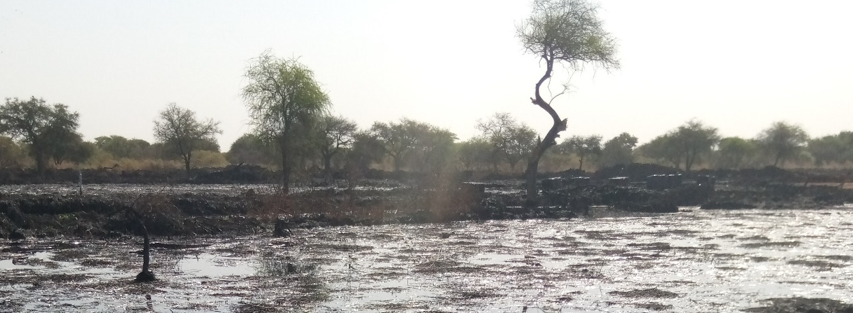South Sudanese citizens in the oil-producing area of Ruweng are worried about the oil pollution causing infant deformities and diseases.
Sarah Akuot, the Information Minister in the Ruweng area –one of the areas affected by oil pollution– said that oil production generates income for the country, but it badly affects citizens living near oil wells.
“In the last two years, we recorded five children born with birth defects, and on 28 May this year, one deformed child was recorded and that child died on 6 June,” Akuot told Radio Tamazuj in an exclusive interview.
Akuot, who is also the area’s government spokesperson, said she met with the national ministers of health and environment and oil firm operating in the area and discussed the possible conduct of an environmental audit in oilfields.
Meanwhile, Mary Ayen Mijok, First Deputy Speaker of the Council of States, said they had recorded many cases of babies born deformed due to oil pollution in the area since 2016.
Ayen, who is representing the Ruweng area in the upper house of parliament, said: “I have witnessed many cases of babies born with deformities in the area and what I learned from communities is that they don’t report such cases to hospitals”.
She said they had summoned three ministers of health, petroleum and environment. “The reason why we are summoning those three national ministers is that they will come and tell us the reasons why they don’t control oil pollution in the area,” she stressed.
Bol Dau, an uncle to a baby born with deformities in the oil-producing area of Ruweng last month, told Radio Tamazuj that the child was born with deformities on 28 May 2023.
According to Dau, there are many cases of deformation and abnormalities in newborns.
“We need a committee of experts to be informed so that they come and make assessments in Ruweng,” he requested.
Benjamin Monybany, a medical doctor in the area, said: “The latest case last month is not the first of such deformities in the area, but I don’t have statistics on all the cases registered by health facilities in the area. The child who was born last month was born with exposed intestines and deformed legs.”
It remains unclear if communities in Ruweng receive the benefits from oil revenues regularly.
A group of rights defenders have in the past few years threatened to sue oil companies if they don’t ensure that standard environmental practice is safeguarded in oil-producing areas.
The Petroleum Revenue Management Act of 2013 says that the oil-producing states will receive 2% of the net petroleum revenue to be allocated for development projects.
According to the Petroleum Act of 2012, oil production activities should be done in a way that ensures a high level of health and safety.
Currently, South Sudan produces 156,700 barrels of crude oil per day. Oil accounts for up to 90% of government revenues.




